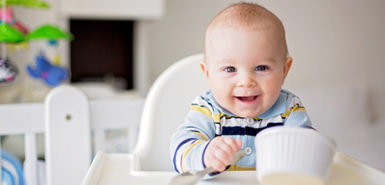
Families. They come in all sizes.
Most consider my family large with our six kids, but I love having a lot of children.
Having a new baby, meanwhile, means plenty of adjustments for new parents and children.
I’ve noticed comments on Facebook groups where moms were concerned about baby No. 2 coming, and yet they didn’t feel ready. They wondered if they’d be able to “get it all done” with a new baby again.
In a recent webinar I listened to, the speaker mentioned research that showed how, for both mom and dad, the first baby seemed exciting and they both looked forward to the arrival.
With the second baby, dad felt just as excited, but moms didn’t.
The speaker explained how moms may sometimes wonder how to do it all again.
Because let’s face it: It’s hard to raise a little person.
But whether you feel ready or not, there are some things you can do to prepare your child—or your many children, if you’re from a big family—for a new sibling.
First off, I’d recommend a sibling class.
All the Spectrum Health hospitals have Big Brother/Big Sister classes. This typically involves a one-time class that includes watching a fun video about a new baby—both what they’re like and what it’s like having a new baby at home.
We also practice diapering and swaddling a baby doll. We talk about what a new baby can and can’t do, we practice holding the “baby” and we do much, much more.
Here are some suggestions to prepare your child for the new baby:
- Include the child in preparation activities. Let your child help set up the nursery, fold newborn clothes, attend OB provider appointments, feel the baby kick, and so on.
- Prepare your children, in advance, for the day mom will be at the hospital. Let your little ones know who they’ll staying with, and make sure they know mom will be coming home with a new baby. And remind your children that they’re so special—each one of them.
- Do “practice” sessions. Have your child practice diapering, or practice swaddling a baby doll.
- Talk about ways your child can help. They can get the diapers, throw away diapers, get mom a glass of water, pick up toys—the options here are endless.
- Read books about bringing home a new baby. The library has lots of books to choose from on this topic.
- Have a small gift for the child, special from the new baby. This was something I had fun doing. It helps the child feel special when a lot of attention is focused on baby. I also did this for my grandsons.
- Let them know what to expect. Be sure to explain to them that people will want to see the new baby. It doesn’t make them any less special, and it’s normal.
How should parents prepare and what should they expect?
- Know the plan in advance. Before the baby arrives, talk together—and then with your child—about what the child is allowed to do. A child of any age can sing to baby, for instance, but only an older child may be allowed to carry baby, hold baby or change baby’s diaper.
- Know it’s normal for children to regress when a new baby comes home. This is typical of children ages 1 to 7. Be patient and understanding—their world is changing! Remind them of the things they can do because they aren’t “the baby.”
- Sibling rivalry or feelings of jealousy are normal. Let them vent their feelings, both positive and negative. Praise positive behavior.
 /a>
/a>
 /a>
/a>
 /a>
/a>
Yes, each member of the family adds something new for sure. Sure, it takes time to adapt, even for adults. Lots of affection and time for the older kids usually helps the process. Thanks for your tips. Blessings to you and yours!